Content with Little & with Much
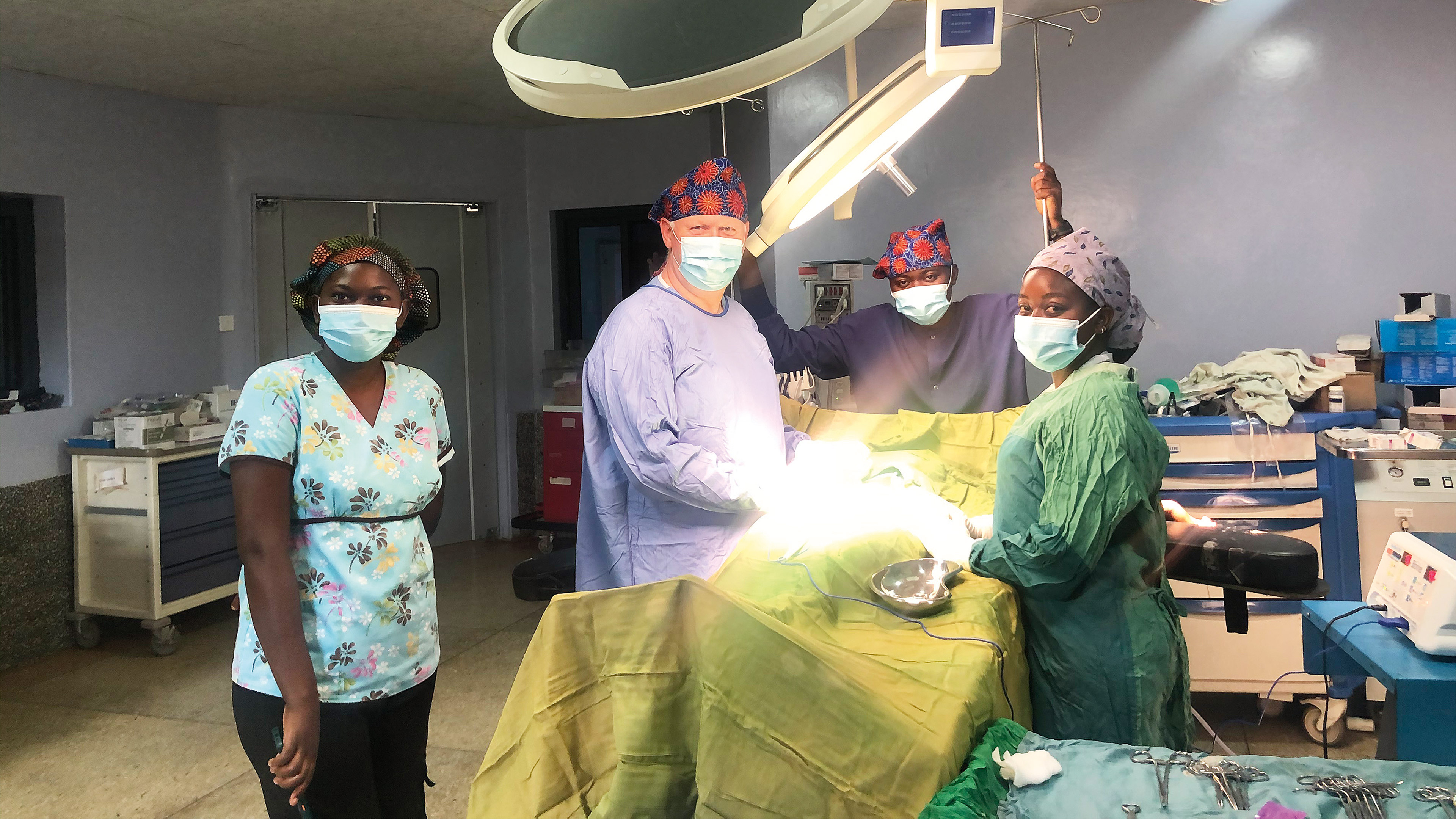
World Medical Mission – A Ministry of Samaritan's Purse
Spring 2023
Childhood memories instilled lifelong values for two physicians serving in Zambia.
The cesarean section was almost complete when the room went dark.
Dr. Claudiu Cimpean, a visiting general surgeon from North Carolina, was assisting another surgeon with the operation. It was his first week as a volunteer at Macha Mission Hospital, a remote medical post in southern Zambia.
Fortunately, they had delivered the baby a few moments before, healthy and announcing its arrival with bellowing cries.
Unplanned power outages are nothing out of the ordinary here, and the operating room staff knew exactly what to do. Three of them pulled cellphones from their pockets and flashed rays of light in unison above the surgical site to finish suturing the patient.
It took 15 minutes for backup generators to kick in. By then the surgeons had wrapped up the procedure, and all was well for the mother and her newborn. Not long afterward, electrical power returned.
Dr. Cimpean was impressed by the staff's can-do attitude. Having never experienced life in Africa until now, every day in the hospital was a new adventure.
“We had limited resources, but the care was good and the patients were very resilient,” he said. “Being a rural hospital, they pretty much take care of whatever situation comes through the door.”
“We had limited resources, but the care was good and the patients were very resilient,” he said. “Being a rural hospital, they pretty much take care of whatever situation comes through the door.”
What was originally planned as a family missions experience turned into a party of three due to illness and school obligations. Cimpean, his 15-year-old son, Andreas, and his sister-in-law, Dr. Ioana Pogacean, made the trip. Dr. Pogacean is a dentist, and the opportunity to serve at a mission hospital in Africa was also a first for her.
“I was able to relate to the people in Zambia and adjust quickly to life there because of the way I grew up,” Dr. Pogacean explained. “As a child, we experienced power outages. We washed laundry by hand. We did have a TV, but only one or two channels, and nobody was watching it. We played outside, as there was nothing else to do to entertain us. All the kids knew each other and played together.”
Both physicians are native Romanians who grew up under an oppressive communist regime. They learned to make do with what they had and found joy in the midst of hardship. Now as U.S. citizens, they deeply appreciate the freedoms they enjoy in America, and they want to give others hope for a better future.
'Slim to Nothing'
Cimpean's parents were educated and worked as economists for the government. However, because they were Christians and refused to join the Communist Party, Claudiu said they could not advance in their careers.
He recalls their cramped living conditions. The Cimpean family, which included Claudiu, his two brothers, his parents, and later his mother's parents, lived in a five-room apartment. Three families lived there, sharing the kitchen and bathroom.
“Under the rules of the state, you couldn't have but so much square footage,” he said. “For about the first 15 years of my life, because the apartment was considered large, we had to share with other families that were not relations.”
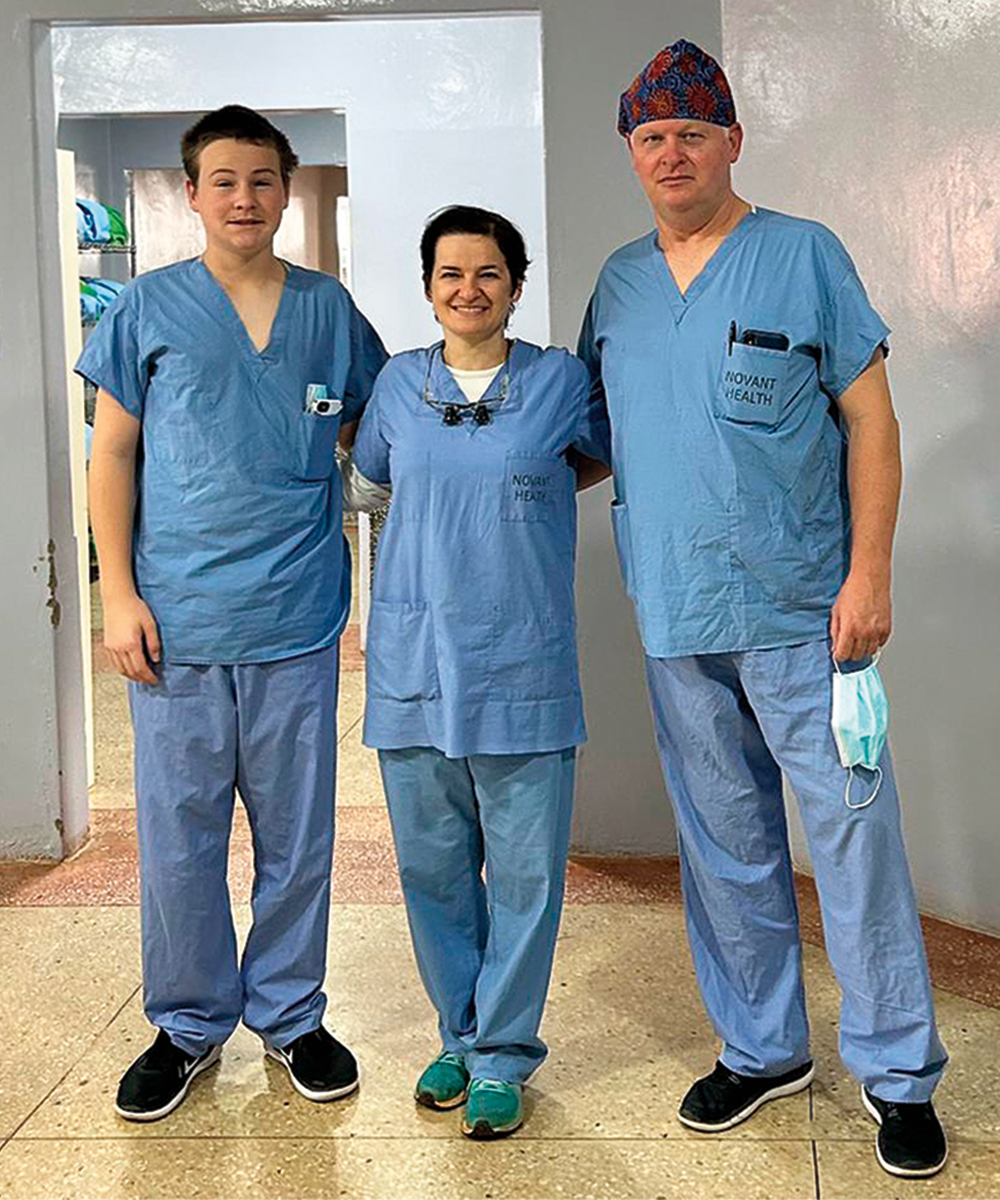
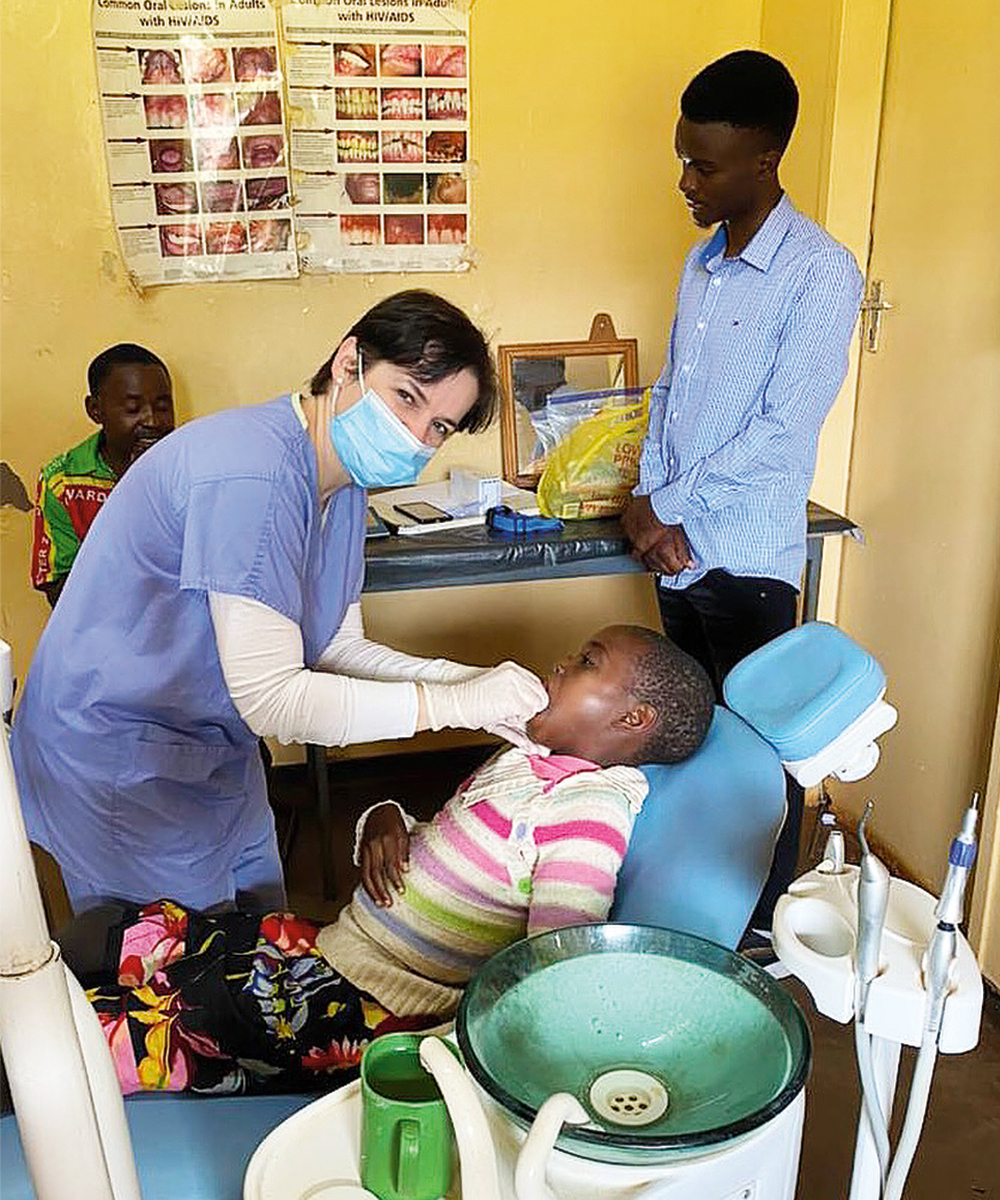
Cimpean was in his third year of medical school when communism fell in Romania in 1989. He and his wife moved to Rhode Island and later to Michigan for his residency training.
Several years later Dr. Pogacean, who was already practicing dentistry in her homeland, applied for a green card lottery to the U.S. She described the chances as “slim to nothing,” as only 55,000 people from around the world are selected annually for the program. The much-prayed-for envelope arrived in the mail the following year.
Pogacean wrestled with mixed emotions during the trans-Atlantic flight to Washington, D.C., but she eventually settled in, took classes to receive licensure to practice dentistry in the U.S., and joined the Cimpeans who had relocated to North Carolina.
Trip of a Lifetime
Experiencing a taste of daily challenges in Zambia brought back a wave of childhood memories for both physicians. During those lean years in Romania, Pogacean and her family didn't have a lot of material possessions. From clothes to prized books to daily food, they made sure everything would last as long as possible.
When she walked into Macha's dental clinic, she saw beat up, but still functional, instruments laid out for her on a tray. To her surprise, shiny new tools were tucked away on a shelf—unused and set aside for safekeeping.
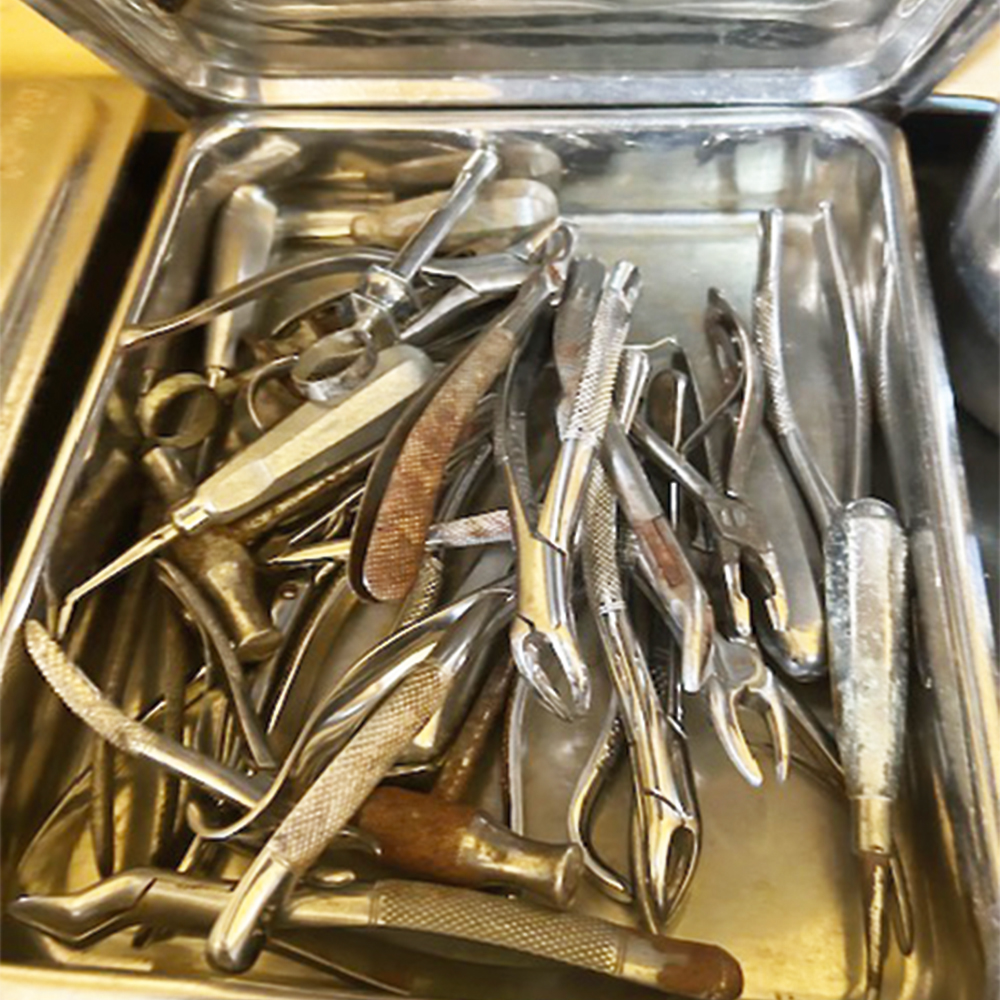
Similar special care was given to objects in the operating room. Cimpean noted that gowns and plastic aprons were carefully folded after use, cleaned, and then used again. Materials like sutures were in short supply. Made aware of the need beforehand, Cimpean brought several items from the U.S. to donate to the hospital.
The Zambia trip was also quite a learning experience for his son, Andreas, who got to observe surgeries in the operating room. He was in the room when the power went out during the C-section procedure.
“He was pretty shocked by some things, but I'm excited for him to be a part of it,” said Cimpean.
The surgeon was taken aback, too, by some medical cases he had never witnessed before in the U.S. or Romania. One case was a little boy with full-blown rabies. After being bit by a dog, the child's parents had waited a month before they brought him to the hospital. At arrival, he was drooling, highly agitated, and trying to bite the staff. Tragically, the child died the next day.
He also treated children who had suffered serious burns after falling into open cooking fires. One 6-year-old girl had third-degree burns on her abdomen, lower back, and thighs. In the U.S., the patient would have been airlifted to a burn care center. That was not an option in this remote area. The child remains at Macha and is receiving a series of skin grafts, but the healing process will be long and torturous for her.
"I have learned in whatever state I am, to be content."
In the dental clinic, Pogacean adjusted to working without X-rays, gauze, and other items that would be considered essential at her office in North Carolina. She brought anesthetics with her and performed cleanings and fillings.
She also did not have a team of dental hygienists or assistants. A dental therapist was the only member of the staff, and his primary job typically is to extract teeth. That's the first course of action taken—and what patients expect—when they walk into the Macha clinic.
“He told me that people walk long distances to come to this clinic. If they know they have a cavity, even if it isn't hurting yet, they want it out,” she said. “They don't want to take the risk to walk back to their villages and then the tooth starts aching.”
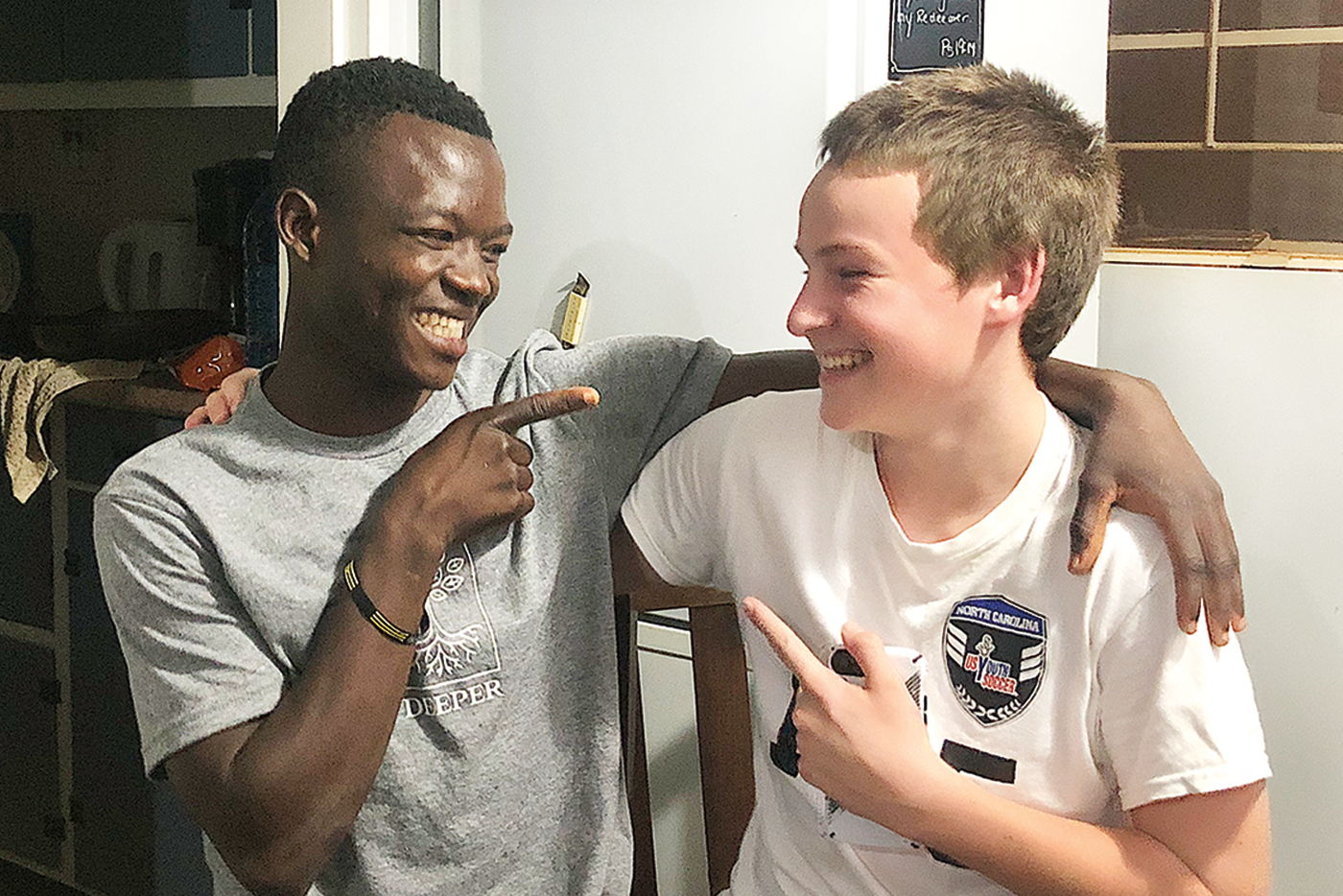
Andreas was excited to form friendships with the children of other medical staff.
Pogacean was astounded that no one fussed or complained, including the children. She remembers the quiet bravery of one 5-year-old who was clearly afraid. “She had tears rolling down her cheeks, but she didn't make any noise. She stayed so nice in the dental chair and let us do her treatment.”
“It's just a different culture. Most of the time the people have a big wide smile. They're singing and they're happy despite their difficulties,” Pogacean said. “I thought it was interesting that many of the children are named “Happiness” and “Blessed.”
After serving at the hospital, the family spent a few days in Livingstone, where they experienced the splendor of Victoria Falls. They also went to an animal safari in Botswana. But the highlight for Andreas was getting to watch the World Cup final in the hostel restaurant with people from countries around the globe. That's an experience he would have missed out on if he had watched the match on TV in his living room in North Carolina.
There was a glitch, however. With Argentina and France tied at 3-3, and the game approaching the last minute in the second overtime round, the power went out in the hostel.
Displeasure would be an understatement. Thankfully, the game had taken a short break for TV commercials, and when the power returned, the penalty shoot-out was in progress. Andreas was able to see the closing moment, and his team won.
It was a special moment for Andreas' dad and aunt too. “It was so fun, and I keep thinking how much I enjoyed Zambia. When I was growing up in Romania, the borders were closed and I thought I would never leave the country,” said Pogacean.
“I recently told Claudiu that I couldn't believe we were able to put our feet in Africa. I never thought in my lifetime that I would be able to do that.”
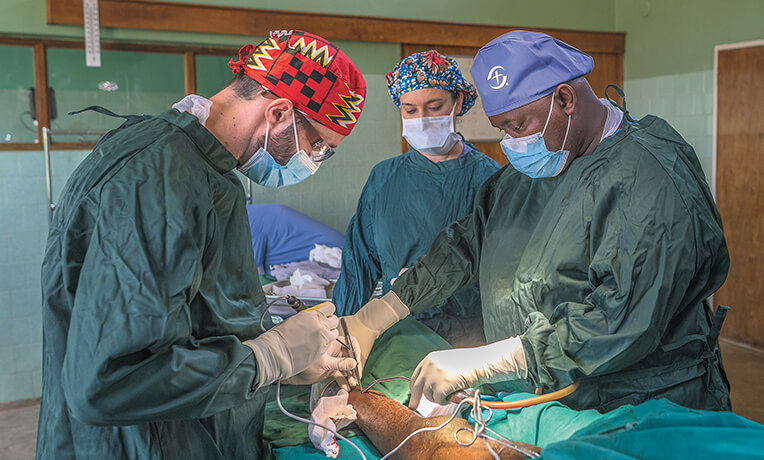
Serve With Us
World Medical Mission is looking for Christian doctors, dentists, nurses, and other healthcare professionals to serve on short-term volunteer assignments at our partner mission hospitals and clinics. We also offer two-year placement opportunities through our Post-Residency Program for those who are completing residency and feel called to a career in medical missions. For more details, contact us at wmminfo@samaritan.org or (828) 278-1173.
Apply Now

